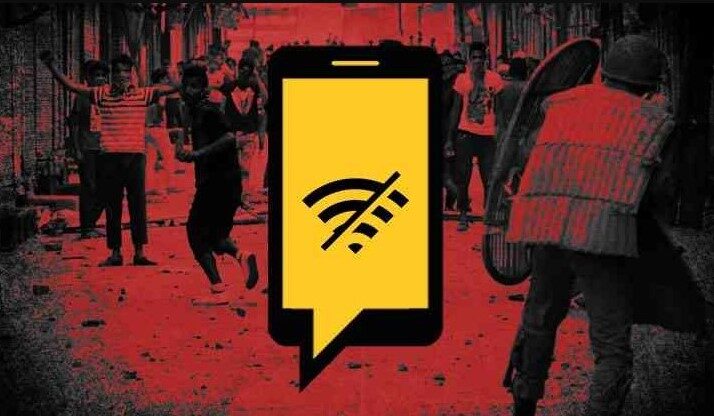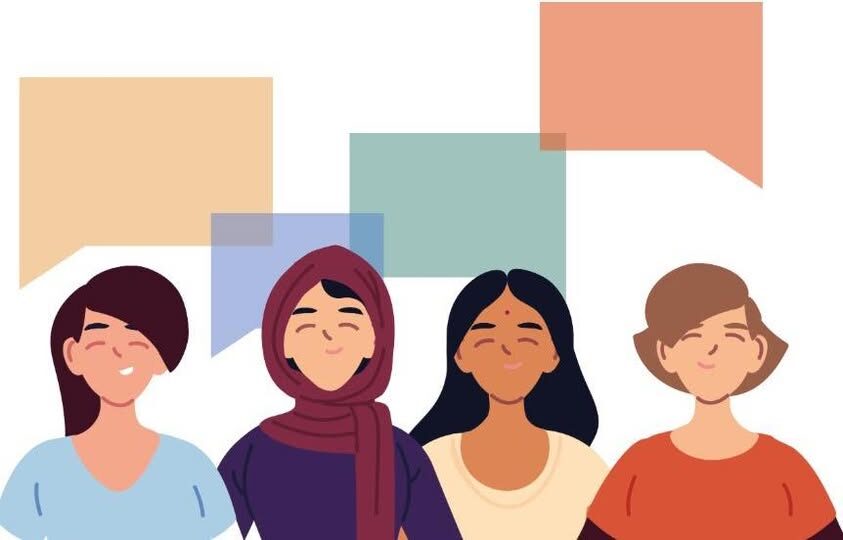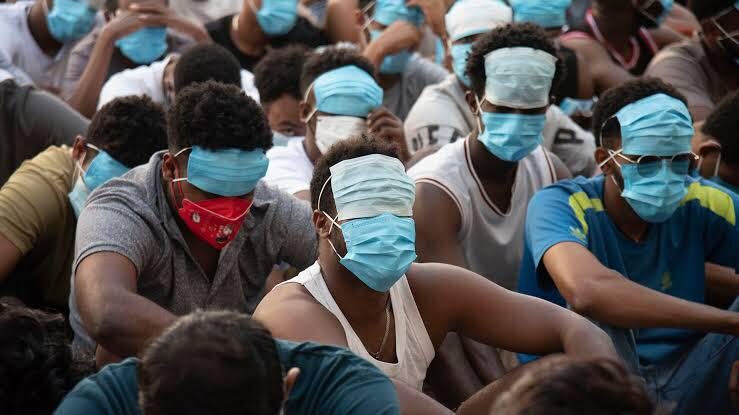Internet Shutdown: Security Measures or Human Rights’ Restrictions?
By: Amb Joshua Fagbemi
Ed. 231 || 10.11.2025
Frequently and recently, internet shutdowns have become a tool used by state authorities to control situations during social unrest or a popular protest. And claims rallies around the tool as a quick measure for keeping the already escalated violence in check and putting everyone in order. Whereas, the after play places restrictions on citizens in exercising their freedom, forces a shutdown of daily activities and threatens the reign of peace.
At the bedrock of these claims lies the need to paint the scenarios as they appear. When an internet blackout happens in a country, citizens are temporarily erased from the face of the earth as they are typically disconnected from the world. Human rights advocates compared this scenario to an inmate confined in a correctional room, whose movement is highly restricted. Internet shutdowns snatch citizens’ will to express their minds and block international interventions.
Meanwhile, internet shutdowns have typically provided little or no solution to social unrest. Recent manifestations of internet blackout have favoured human rights restrictions over its tagged cluster of being a mediator.
Internet Blackouts in Tanzania and Cameroon
In October, Tanzania was the face of global discussions amid its general elections that generated heated debates. Controversies and protests erupted after the main figure of its opposition party, Chadema, was barred from participating, and its leader, Tundu Lissu, was arrested on treason charges.
Before the election, the Gen Z protest had begun in expression against injustice and President Samia Suluhu Hassan’s rule. Amid that, another major opposition leader, Luhaga Mpina of the ACT-Wazalendo party, was disqualified. Along with all these events and widespread protests and violence, President Samia Suluhu Hassan won the disputed election with over 97% of the vote and was sworn in for a second term.
To suppress internet access, the Tanzanian government allegedly shut down the internet, which was first reported on 29 October, the day Tanzanians headed to the polls, and went on for 7 days. During these periods, reports revealed that citizens could not seamlessly perform day-to-day activities such as digital payment or simple SMS text. There were also records of money scarcity, which brought the economy to a standstill. That incident took a hit on Tanzania’s fragile economy, which suffered a staggering $238 million (TSh560 billion) loss.
Paul Biya’s administration also played a high on the internet shutdown in Cameroon.
The West African country witnessed a fierce youth protest over their displeasure with President Biya’s re-election. The protest, which started pre-election, continued after he was declared the winner of the election, extending his rule beyond 40 years. Protesters alleged the election was marred by a series of irregularities. Despite a strong opposition, human rights groups and opposition parties accused Elections Cameroon (ELECAM) of fraud, intimidation, and manipulation of the vote count.
Within these periods, Cameroon shut down internet access on two different occasions. First in October during the election, and another on November 5, when the protests resurfaced, in which real-time internet access to multiple social media platforms was restricted.
On October 27, the Cameroon Constitutional Council declared Paul Biya, the world’s oldest leader at 92, as the winner, confirming his eighth term as president.
Internet blackout: A human rights issue
According to experts, governments disrupt online communication to hinder protesters’ ability to plan and coordinate actions, as blocking internet access can reduce the dissemination of sensitive information. In governments’ claims, shutting down the internet is an attempt to maintain control, exercise security measures and prevent the spread of information that shapes public perception.
Meanwhile, the African Union’s African Commission on Human and Peoples’ Rights has emphasised that the internet plays a significant role in advancing human rights, particularly around ensuring that elections are free, fair and credible.
In the same light, Amnesty International, another human rights organisation, tagged the internet blackout as a human rights concern. It added that internet shutdowns not only prevent records of violations but also mar economic activities.
The human rights organisation, in response to Tanzania’s incident, noted that access to the internet is a suppression of human rights, and government-imposed internet shutdowns are a violation of international human rights law. The body went on to condemn such activity and tagged it an attempt to hide all forms of abuses and suppress dissent.
“Imposing internet shutdowns, especially when people are protesting, stops important information from reaching citizens—such as how to find areas of safety or contact emergency services,” it said in an X post on November 3.
Similar incidents have been reported in other African countries, including Mozambique and Mauritius, where social media access was blocked for a time in late 2024. Tanzania had also, in early 2025, restricted access to X after it alleged that the Elon Musk-owned social media platform allows the flow of misinformation.
However, internet shutdown is not only an African issue but a global practice.
Nepal and Vietnam are among other countries where voice and video calls or social media have been blocked this year. But the most drastic recent action spotlights Afghanistan, where the country experienced a total internet blackout as Taliban authorities enforced new morality restrictions.
In all, internet restriction is fast becoming an everyday tool for government authorities. While these actions are borne from the need to control escalated matters, they do place a heightened pressure on citizens’ access to basic life needs and violate fundamental human rights.
Image Credit: Weetraker
———————————————-
Facebook: Peacepace Initiative
LinkedIn: Peacepace Initiative
X:@PeacepaceNG
Instagram: peacepace_initiative



